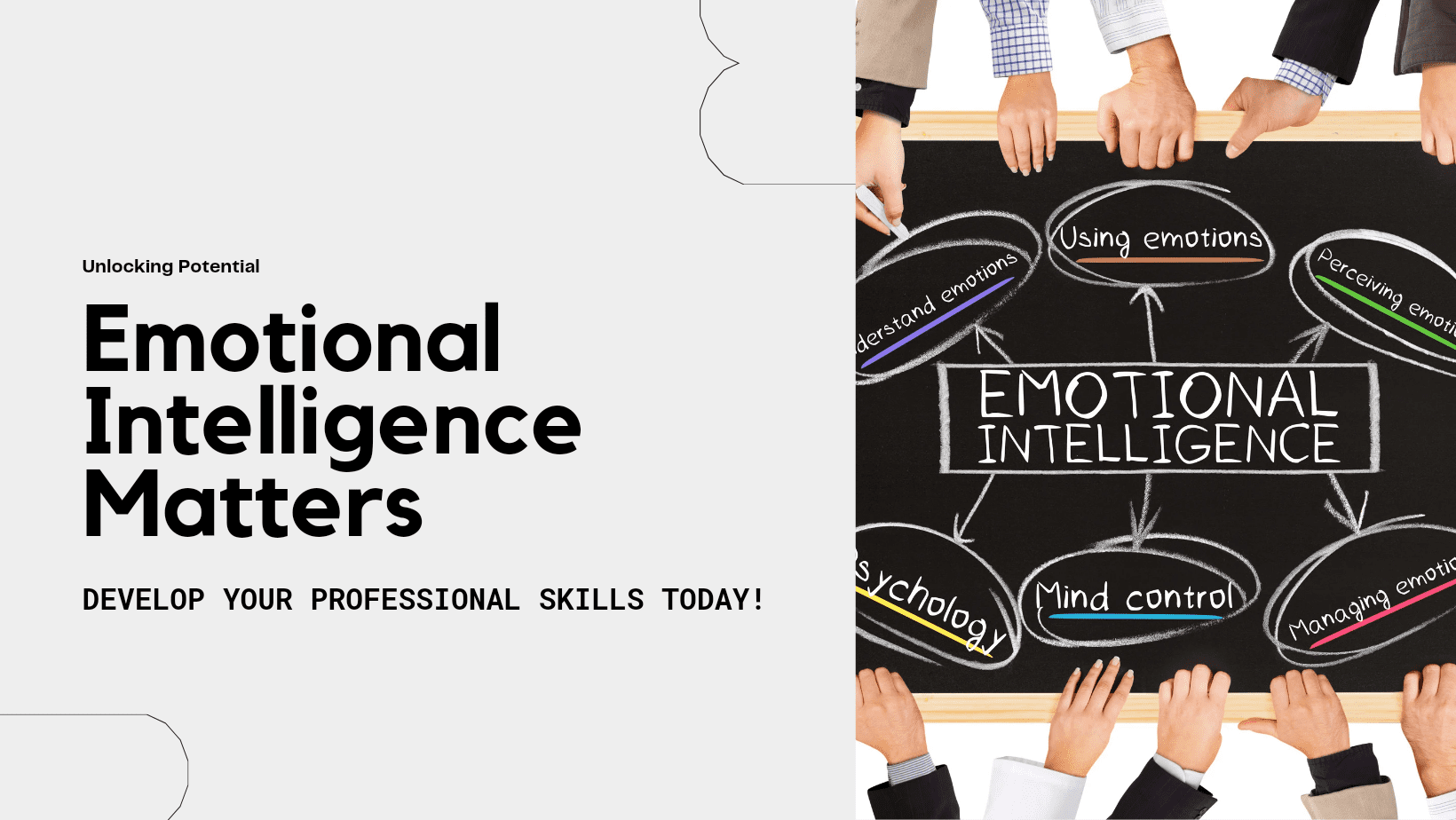In today’s competitive job market, technical skills alone are often not enough to ensure career success. Employers increasingly recognize the value of emotional intelligence (EQ), which encompasses self-awareness, self-regulation, motivation, empathy, and social skills.
This blog post will explore how developing emotional intelligence can significantly enhance your career prospects and workplace relationships, ultimately leading to higher earnings and job satisfaction.
Understanding Emotional Intelligence
Emotional intelligence is the ability to recognize and manage our own emotions while also understanding the emotions of others.
It plays a crucial role in how we interact with colleagues, respond to challenges, and navigate workplace dynamics.
Here are the five key components of emotional intelligence:
- Self-Awareness: Recognizing your own emotions and their impact on your thoughts and behavior.
- Self-Regulation: The ability to control impulsive feelings and behaviors, manage emotions in healthy ways, and adapt to changing circumstances.
- Motivation: Harnessing emotions to pursue goals with energy and persistence.
- Empathy: Understanding the emotional makeup of other people and treating them according to their emotional reactions.
- Social Skills: Proficiency in managing relationships and building networks.
Why Emotional Intelligence Matters
- Improved Communication: High EQ individuals communicate more effectively. They can express their thoughts clearly while also being sensitive to how their words affect others.
- Better Teamwork: Employees with strong emotional intelligence can collaborate more effectively, as they understand team dynamics and can navigate conflicts with ease.
- Enhanced Leadership Skills: Leaders with high EQ can inspire and motivate their teams, fostering a positive work environment that encourages productivity and engagement.
- Increased Adaptability: In a rapidly changing work environment, those with emotional intelligence are better equipped to handle stress and adapt to new situations.
- Higher Earnings Potential: Studies show that employees with high emotional intelligence often earn more than their less emotionally intelligent counterparts due to their enhanced ability to lead teams and manage relationships effectively.
Developing Your Emotional Intelligence
To harness the power of emotional intelligence in your career development, consider these strategies:
- Seek Feedback: Regularly ask for feedback from colleagues about your interactions. This can help you identify areas for improvement.
- Practice Active Listening: Focus on truly understanding what others are saying before responding. This builds rapport and shows you value their perspective.
- Reflect on Your Emotions: Take time each day to reflect on your emotional responses to various situations. Understanding your triggers can help you manage your reactions better.
- Engage in Empathy Exercises: Put yourself in others’ shoes during discussions or conflicts. This practice can enhance your ability to connect with colleagues on an emotional level.
- Pursue Professional Development Opportunities: Look for workshops or courses focused on developing emotional intelligence skills. Many organizations offer training that can be beneficial for career advancement.
Conclusion
Investing in your emotional intelligence is an investment in your career. As workplaces continue to evolve, the ability to navigate interpersonal relationships effectively will become increasingly valuable.
By developing your EQ, you not only enhance your professional skills but also position yourself as a leader in your field.
Embrace the journey of personal growth through emotional intelligence—your career will thank you for it!




